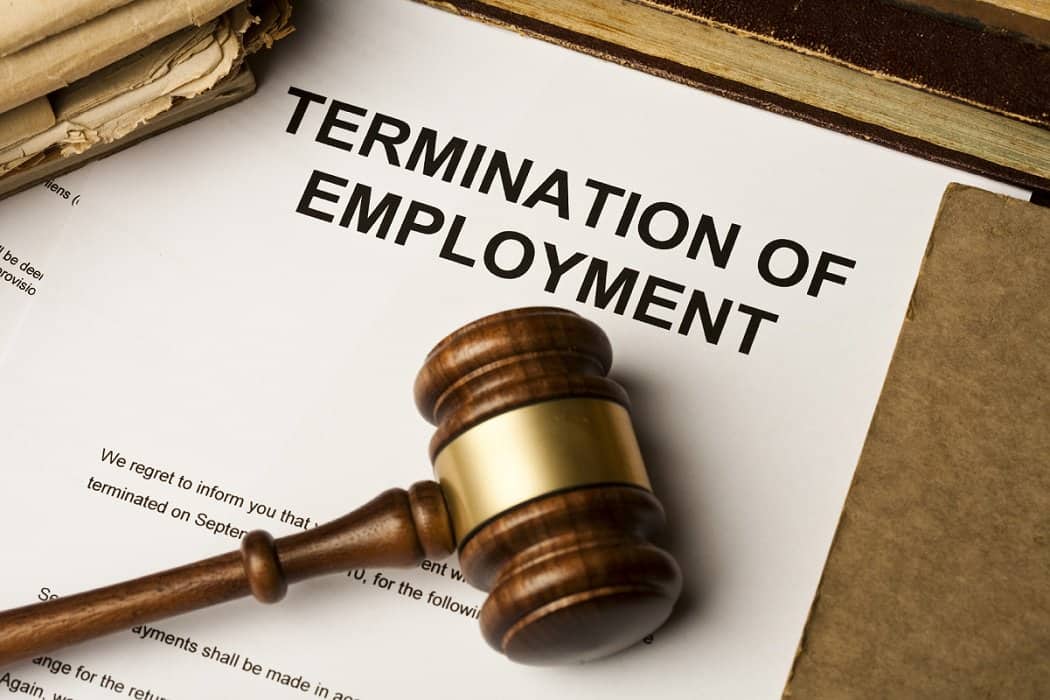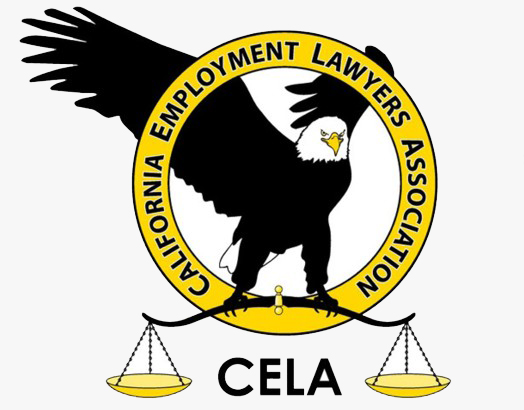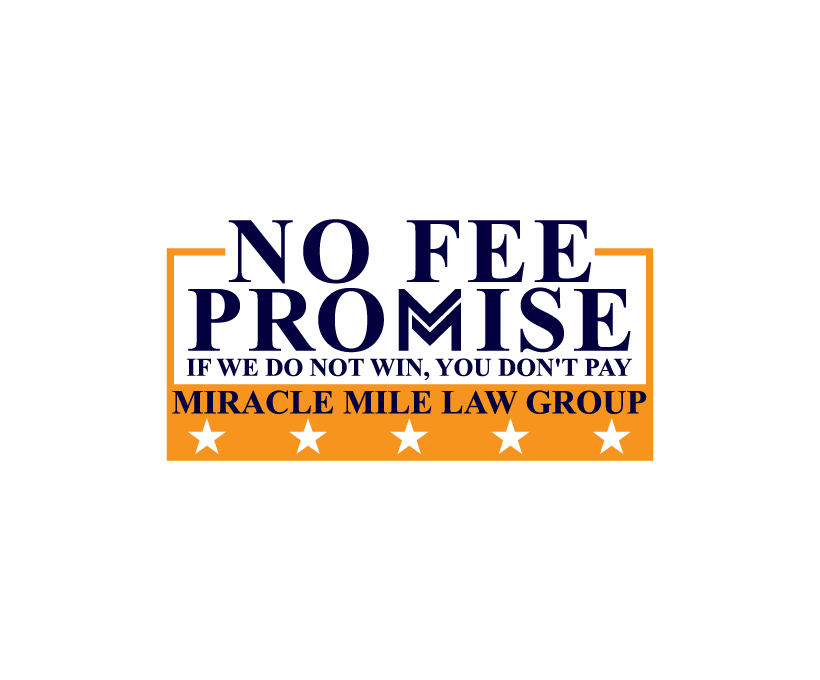Wrongful Termination Attorneys in California
This is personal for us. We know the difference between right and wrong and have based our entire careers on reminding others of that distinction.
Wrongful Termination Lawyer
Being fired from your job can be a stressful and life-changing experience. In many cases, you may have no clue as to why you were fired. In other cases you may think that your employer’s reason for firing you is false. What many people do not know is that by terminating your employment, your employer may have violated the law and you may be entitled to compensation. Our wrongful termination lawyers are here to fight for you.
Your rights in California wrongful termination cases
California is an at-will employment state, but the law sets clear limits on when an employer can fire an employee. Termination becomes unlawful when it violates state or federal statutes, breaches an employment contract, or contravenes established public policy. These protections apply across industries and to employees at every level of the workplace.
Wrongful termination cases in California often arise under four categories of protection:
- Discrimination: You cannot be fired based on protected characteristics such as race, religion, gender, disability, age, sexual orientation, pregnancy, or medical condition under the Fair Employment and Housing Act (FEHA) and federal law.
- Retaliation: Employers cannot terminate employees for reporting discrimination, harassment, unsafe working conditions, or wage violations, or for refusing to engage in illegal activity.
- Protected activities: The law safeguards employees from termination related to activities such as jury duty, family or medical leave, military service, political activity, or asserting wage and hour rights.
- Public policy violations: An employer cannot fire you for refusing to violate the law, for performing a statutory duty, or for reporting unlawful conduct that affects the public interest.
Employees may also bring wrongful termination claims for constructive discharge, where the employer makes working conditions so intolerable that the employee has no choice but to resign. Courts evaluate evidence such as performance reviews, company policies, internal complaints, and witness testimony to determine whether a firing violated the law.
Understanding these legal standards is essential before pursuing a claim. At Miracle Mile Law Group, our attorneys analyze the facts of your dismissal, identify the legal violations involved, and pursue the maximum remedies available under California and federal law.
Hiring Miracle Mile Law Group for your wrongful termination case
Wrongful termination cases are rarely straightforward. Employers often cite “performance” or “business needs” as a pretext to conceal discrimination, retaliation, or violations of public policy. At Miracle Mile Law Group, we handle every stage of the process for you. From the first consultation, our attorneys evaluate the facts of your dismissal, gather evidence such as personnel records, emails, and witness testimony, and identify which state or federal protections apply to your situation. We then file the necessary administrative complaints, pursue right-to-sue letters, and move your case forward in court if settlement is not achieved.
Our approach is comprehensive. We analyze not only the direct reasons given for your firing but also whether your employer ignored requests for accommodations, retaliated after you reported misconduct, or treated you differently than other employees in similar situations. We negotiate aggressively to secure fair compensation, and if your employer refuses to resolve the case, we are fully prepared to litigate at trial. Our record includes multi-million-dollar verdicts and settlements in wrongful termination, retaliation, and discrimination claims.
Representative wrongful termination and retaliation results
- $2,000,000 – Disability Discrimination: Our client, a long-term employee with over 20 years of service, was terminated after requesting reasonable accommodations. We successfully recovered millions in compensation.
- $1,900,000 – Whistleblower Retaliation: After raising concerns about fraudulent practices, our client was terminated under the guise of “business needs.” We secured a substantial settlement after years of litigation.
- $1,146,311.63 – Pregnancy Discrimination Verdict (Valdez v. The Accident Attorneys’ Group, Inc.): Our client, a legal assistant, was fired while seven months pregnant. A jury awarded damages and the court affirmed over $900,000 in fees and costs.
- $1,000,000 – Associational Disability Discrimination: We obtained a seven-figure settlement for an employee terminated after requesting flexibility to care for family members with medical conditions.
- $1,250,000 – Discrimination: We secured a substantial settlement for a client treated unfairly due to her gender. Litigation was filed promptly and justice was achieved.
These results demonstrate the level of advocacy we bring to wrongful termination cases. While every case is different, our track record shows that we have the resources, legal knowledge, and courtroom experience to hold employers accountable when they break the law.

YES! In California, the relationship of employer and employee is generally “at will.” This means that, without an employment contract, the employer or the employee can terminate the employment relationship at any time, with or without cause. However, an employer CANNOT fire you for any reason that violates state or federal law. Having a wrongful termination lawyer will help prove that you were fired for illegal reasons.
State and Federal law provides protections for employees who were fired illegally. If you feel that by terminating your employment, your boss was discriminating or retaliating against you for something you did, then you may be able to receive compensation. Likewise, if your boss fired you for reporting a violation of the law or refusing to violate the law, you should contact an attorney.
The sad truth is that a large number of employees are fired on a daily basis for reasons that are illegal, but many of those employees have absolutely no idea they have a lawsuit on their hands. Remember, even at-will employees can be terminated for an unlawful reason.
If you feel that you were wrongfully fired from your job, you may be entitled to compensation. The Miracle Mile Law Group wrongful termination lawyers are here to ensure that you get the maximum amount of damages for your wrongful termination lawsuit. We are here to guide you through the legal process.
Wrongful termination claims generally fall under 4 categories of protections. If you feel that your termination violates any of the following 4 protections, then you may have a lawsuit for wrongful termination:
- Anti-Discrimination Laws
- Anti-Retaliation Laws
- Protected Activities
- Violations of Public Policy
1. Anti-Discrimination Laws:
Both state and federal statutes prohibit termination on the basis of certain characteristics. This means that you CANNOT be fired based on your:
- Age, for people 40 and older,
- Gender identity, gender expression and transgender status;
- Marital status;
- Medical conditions (including genetic characteristics and genetic information);
- National origin and ancestry (including driver’s licenses for undocumented workers);
- Physical or mental disability;
- Pregnancy, childbirth, breastfeeding and related medical conditions;
- Race and color;
- Religion;
- Sex (including sexual harassment);
- Sexual orientation;
- Military and veteran status; and
- Union activity.
For example, if you feel that you were fired because you have a disability which imposes work restrictions that your employer refuses to follow, then you likely have a lawsuit for wrongful termination based on disability discrimination.
2. Anti-Retaliation Laws:
Your employer cannot terminate you because you exercised a right granted by a state or federal statute. Typically, employee anti-retaliation claims occur when an employee refuses to violate the law. For example, disposing of hazardous waste improperly or accepting less than the minimum wage or mandatory overtime rate, or when an employee “blows the whistle” to a government agency on an employer believed to be violating the law. Whistleblower claims are continually on the rise. A wrongful termination lawyers will assist you in showing that you were retaliated against.
- Affordable Care Act (ACA)
- American Recovery and Reinvestment Act of 2009
- Bankruptcy Reform Act of 1978
- California Occupational Safety and Health Act of 1973 (Cal-OSHA)
- Clean Air Act of 1977
- Consumer Credit Protection Act of 1968
- Consumer Product Safety Improvement Act of 2008
- Employee Polygraph Protection Act of 1988
- Employee Retirement Income Security Act of 1974
- Energy Reorganization Act of 1974
- Fair Employment and Housing Act (FEHA)
- Fair Labor Standards Act of 1938
- Fair Pay Act
- Federal Corporate and Criminal Fraud Accountability Act (Sarbanes-Oxley Act) of 2002, protection for whistleblowers.
- National Labor Relations Act (NLRA)
- Occupational Safety and Health Act of 1970 (OSHA)
- Protection of Juror’s Employment Act
- Title VII, Civil Rights Act of 1964 (Title VII)
- Protection for Wage Claimants
- Right of Employees to Disclose Information to a Government or Law Enforcement Agency
- Right of State Employees to “blow the whistle” on illegal activity
- And many more!
3. Protected Activities
Your boss cannot fire you for participating in activities that are protected by the law. Examples of this include:
- Being subject to wage garnishment
- Disclosing or refusing to disclose wages
- Voluntarily participating in an alcohol or drug rehabilitation program
- Refusing to authorize the disclosure of medical information
- Jury duty
- Political Activity
- Military service
- Acting as volunteer firefighter, reserve police officer or emergency rescue personnel
- Refusing to patronize employer
- Refusing to commit an illegal act
- Taking time off to appear at a child’s school about a suspension
- Taking time off for a child’s school or child care activities
- Maintaining privacy of arrest records that do not lead to convictions
- Refusing to participate in abortions
- The results of a blood test for AIDS
- Serving as an election officer on Election Day
- Reporting apparent victims of abuse or neglect, as obligated by statute
- Disclosing information on a violation of law to a government or law enforcement agency
4. Public Policy
Wrongful termination in violation of public policy means that an employee was terminated for an unlawful reason that violates explicit state or federal government public policy. Violations of public policy generally fall into 4 categories
- Termination for refusing to violate a statute
- Termination for performing a statutory obligation
- Termination for exercising a statutory right or privilege
- Termination for reporting an alleged violation of a statute of public importanceThese claims often arise when an employee refuses a supervisor’s sexual advances, reports the employer to health and safety officials or makes a wage claim to the state Labor Commissioner. Even if a lawsuit shows that the termination was unrelated to these actions, a wrongful termination in violation of public policy claim may still be successful!
Examples of cases where terminated employees successfully proved wrongful termination in violation of public policy include:
- Termination for reporting to the employer that other employees engaged in bribery, kickbacks or tax evasion. Collier v. Superior Court.
- Termination for refusing to submit to drug testing, which violates the right to privacy created by the California Constitution. Senmore v. Pool.
- An employee who refused to perjure himself at a hearing despite his employer’s insistence that he do so to protect the organization. Petermann v. International Brotherhood of Teamsters.
- An employee who was forced to resign after refusing to enter into a sexual relationship with her supervisor. Rojo v. Kliger.
- An employee who reported adulterated milk to health officials. Garibaldi v. Lucky Food Stores, Inc.
- An employee who voluntarily resigns can still bring a claim for wrongful termination known as “constructive discharge.” Constructive discharge involve situations where, rather than terminating the employee, the employer makes working conditions so intolerable that the employee will resign. An employee can also bring a constructive discharge lawsuit against an employer that offers an employee the supposed choice of quitting or being fired.
Some Questions You Are Probably Asking Yourself About Your Dismissal Include:
- Can I sue for wrongful termination?
- How do I prove my wrongful termination case?
- Was my termination wrongful?
- Was I unfairly dismissed at work?
- Should I Hire a Wrongful Termination Lawyer?
- How do wrongful termination lawyers prove a wrongful termination case in a court of law?
- How can I prove that my firing was illegal and/or wrongful?
- Can I sue my employer for distress?
- Do I still have time to file a wrongful termination lawsuit?
Not All Attorneys Are Prepared To Take On Wrongful Termination Cases
Wrongful Termination cases are complex as it often comes down to circumstantial evidence in order to prove that the termination was indeed wrongful. That is why it is crucial to have an experienced attorney who is well versed in the area of employment law. Here at Miracle Mile Law Group, we are dedicated and well-versed in California employment law.
Our Wrongful Termination Lawyers Will Ask You:
- How long you have worked for the company?
- How was your work performance? Including positive/negative evaluations, promotions, bonuses, raises, etc.
- Was was your relationship with your supervisors, customers and fellow colleagues?
- What were your company policies addressing harassment, discrimination and termination?
These are the type of questions an experienced employment attorney will ask you. If an attorney fails to ask you these questions, he or she has probably overlooked key portions of your case.
-
- Wrongful Termination occurs in various different industries, jobs, and companies. However, some sectors of the economy are affected more often than others. Some common examples of certain industries that are heavily affected by wrongful termination include:
- Healthcare
- Banking
- Construction
- Business Executive
- Entertainment Industry
- Leisure and Hospitality
- Finance Industry
- Education, such as schools, universities, and colleges
- Retail Trade
- Manufacturing
- Nightclubs/Bars
- Professional Services Industries
- Wrongful Termination occurs in various different industries, jobs, and companies. However, some sectors of the economy are affected more often than others. Some common examples of certain industries that are heavily affected by wrongful termination include:
- Larger companies inevitably face wrongful termination lawsuits at a higher rate because they often employ more employees. When supervisors are tasked with overseeing a large number of staff, wrongful conduct commonly occurs. Some companies and organizations that face a litany of employment lawsuits include:
- What Is A Statute of Limitations? A statute of limitations refers to the amount of time you have to file a lawsuit in a court of law. If you do not file within the time permitted of a statute of limitation, then you lose the chance to recover for your damages. Wrongful termination lawsuits have a statute of limitations.
- What is the Statute of Limitations for a Wrongful Termination Lawsuit? Wrongful termination is the umbrella term for being fired for some illegal reasons. Illegal reasons for termination include those that are motivated by discrimination for age, race, disability, marital status, or reporting a violation of law.If you are suing for wrongful termination based on discrimination, you have 180 days from the date of last discriminatory act to obtain a right-to-sue letter from the Equal Employment Opportunity Commission (EEOC). After this you have 90 days to file suit in a court of law. On the other hand, the Department of Fair Employment and Housing (DFEH) gives you one year from date of last discriminatory act to obtain a right-to-sue letter. After obtaining the right-to-sue letter, the DFEH gives you another to file a lawsuit in State court. Therefore, your wrongful termination case is time sensitive, so you must act fast in contact a lawyer to preserve your rights.
- What If the Time Has Passed for Me to File A Wrongful Termination Lawsuit?In most cases, if you do not file a timely lawsuit within the statute of limitations, then there is no chance of recovery. However, there is one option that a skilled lawyer can pursue. This includes the Continuing Violations Doctrine. The Continuing Violation Doctrine may extend the one-year time period if the employee’s lawyer can prove that some of the employer’s conduct fell outside the one-year period AND the conduct was sufficiently linked to the conduct that does fall within the one-year period.
If you believe you have been fired illegally, contact a Los Angeles wrongful termination lawyer today. Having a lawyer by your side when trying to prove that you have been wrongfully terminated is essential. Give us a call at (888) 244-0706 or contact us online for a FREE case evaluation. Remember, we do not take a single dollar unless WE WIN!
| Cause | What It Covers | California Law Considerations | Example Scenario |
|---|---|---|---|
| Discrimination | Termination based on protected characteristics such as age, race, disability, sex, pregnancy, religion, sexual orientation, or national origin. | FEHA applies to employers with 5+ employees and provides broader protections than federal law, including gender identity, marital status, and medical condition. | An employee with a disability is fired instead of being granted reasonable accommodations required under law. |
| Retaliation | Firing an employee for reporting unlawful conduct, participating in an investigation, or asserting legal rights. | FEHA, Labor Code, and whistleblower statutes bar retaliation for reporting safety violations, wage theft, harassment, or discrimination. | A worker complains to HR about harassment and is terminated within weeks under a pretext of “restructuring.” |
| Whistleblower Protections | Protection for employees who disclose violations of state or federal law to authorities or supervisors with investigative authority. | Labor Code §1102.5 provides broad protections for whistleblowers; employees cannot be fired for refusing to participate in unlawful activity. | An accountant reports financial fraud to regulators and is terminated shortly afterward. |
| Public Policy Violations | Termination for reasons that violate fundamental state or federal policy, such as exercising statutory rights or refusing to break the law. | Employees can bring tort claims for wrongful termination in violation of public policy, often overlapping with statutory rights under FEHA and Labor Code. | An employee is terminated for serving on a jury, which is protected civic duty. |
| Protected Leave | Termination for taking or requesting leave protected under law, such as CFRA, FMLA, or pregnancy disability leave. | California laws often provide more expansive family and medical leave protections than federal law, with coverage beginning at smaller employers. | A worker returning from CFRA leave for a new child is terminated under the excuse of “lack of work.” |
| Note: Every wrongful termination case depends on unique facts, timelines, and available evidence. For advice on your specific situation, please contact Miracle Mile Law Group directly for a free consultation. | |||




